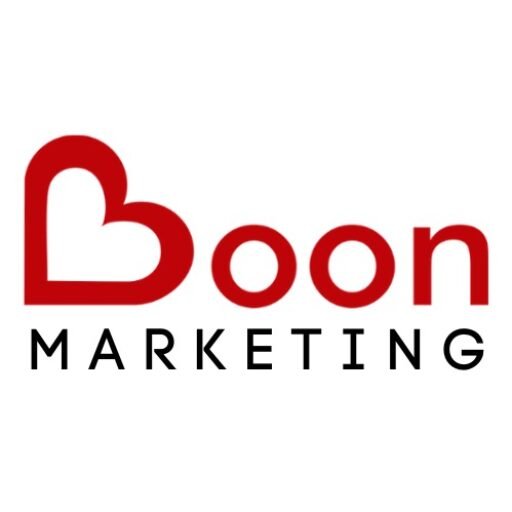The Digital Revolution: Why Digital Marketing Is Essential for Every Business
In today’s fast-paced and connected world, the Internet has become an integral part of our daily lives. As a result, businesses have had to adapt to this digital environment and digital marketing has emerged as a key part of their success. Whether you run a small local business or a multinational corporation, digital marketing is essential to reaching and engaging your target audience. In this comprehensive guide, we’ll explore in detail why digital marketing is so important to every business and how it can transform your marketing efforts.
1. Global reach
One of the most significant benefits of digital marketing is its ability to reach a global audience. Traditional marketing methods often have geographic limitations. For example, an ad in a local newspaper may only reach people in your town. However, digital marketing knows no boundaries. Through online channels such as social media, search engines and email marketing, businesses can connect with potential customers around the world.
Imagine running a small artisan soap business in a quaint coastal town. With digital marketing, you can showcase your unique products to customers not only locally, but across the country or even internationally. This global reach opens up new markets and growth opportunities previously unavailable to small businesses.
2. Cost effectiveness
Compared to traditional marketing methods such as print advertising or television commercials, digital marketing is often much more cost-effective. This is a game changer for businesses on a tight budget. You can use digital channels to promote your products or services without making money.
Consider the cost of printing and distributing brochures versus creating engaging content for your website or social media profiles. The latter not only costs less, but also has the potential to reach a much larger audience. In addition, digital marketing enables precise targeting and ensures that your marketing budget is spent effectively on reaching the right audience.
3. Measurable results
Digital marketing gives businesses the ability to track and measure their marketing efforts in real time. You can track website traffic, conversion rates and ROI (return on investment) with tools like Google Analytics. This data-driven approach enables rapid adjustments to marketing strategies based on what works and what doesn’t, leading to better results over time.
For example, if you run an e-shop, you can easily track which products are selling well and which ones need more promotion. If a particular digital ad campaign isn’t producing the expected results, you can adjust it or allocate your budget elsewhere. This level of transparency and control is unparalleled in traditional marketing.
4. Better customer engagement
Customer engagement is vital to building brand loyalty and digital marketing excels in this area. For example, social media platforms allow businesses to directly interact with their audience through comments, messages and posts. You can respond to customer inquiries, solve problems and build a community around your brand.
Imagine you own a boutique coffee shop. Through Instagram and Facebook, you can share pictures of your artisan coffee creations and reach out to customers by quickly responding to their comments and messages. These interactions build trust and strengthen the customer-store relationship. When customers feel heard and valued, they are more likely to become loyal patrons.
5. Targeted advertising
Digital marketing offers unique targeting options. Through platforms like Facebook Ads, Google Ads, and programmatic advertising, businesses can create highly specific advertising campaigns that target individuals based on demographics, interests, and behaviors. This accuracy ensures that marketing messages are delivered to the right people at the right time, increasing the likelihood of conversions.
Let’s say you own an online sportswear store. Using digital marketing, you can run targeted ads that are shown to users who have expressed an interest in sports and fitness. You can even narrow it down to people who visited your site but didn’t make a purchase. This level of targeting detail maximizes the effectiveness of your ad spend and minimizes wasted impressions.
6. Adaptability
The digital landscape is constantly evolving and businesses must adapt to stay relevant. Consumer behavior and technology trends are constantly changing. For example, the rise of smartphones and the popularity of social media have dramatically changed the way people access information and make purchasing decisions.
Digital marketing allows rapid adjustments of marketing strategies to be in line with these changes. Whether it’s adapting to changing social media algorithms or incorporating new technologies like virtual reality, digital marketing allows businesses to stay ahead of the curve. An agile marketing approach ensures you stay competitive and in tune with your audience’s preferences.
7. Competitive advantage
In today’s competitive business environment, a strong online presence is not just an advantage; it is a must. Consumers often research products and services online before making a purchase decision. A well-executed digital marketing strategy ensures that your business is visible when potential customers are looking for what you have to offer.
Imagine running a boutique hotel in a popular tourist destination. When travelers search for accommodation in your area, your website and online reviews should appear prominently. If you rely only on traditional marketing methods, you may miss out on these potential guests. Your competitors who invest in digital marketing will have a clear advantage in attracting online savvy customers.
8. Data-driven decision making
Digital marketing provides valuable data and insights that can inform strategic decisions. By analyzing customer behavior, preferences and engagement metrics, businesses can make informed decisions about product development, pricing and marketing tactics. This data-driven approach minimizes guesswork and increases the likelihood of success.
For example, if you notice that a significant portion of your website traffic is coming from mobile devices, you may prioritize optimizing your website for mobile users. If email marketing campaigns consistently generate higher conversion rates than social media posts, you can allocate more resources to your email marketing. These decisions are based on real data, so they are more likely to lead to positive results.
9. Different marketing channels
Digital marketing offers a wide variety of channels to choose from, allowing businesses to diversify their marketing efforts. The most effective digital marketing channels include:
- Search Engine Optimization (SEO): Optimizing your website to rank higher in search engine results pages, thereby increasing organic traffic.
- Social Media Marketing: Using platforms like Facebook, Instagram, Twitter and LinkedIn to connect with your audience and build brand awareness.
- Content Marketing: Creating valuable and relevant content that attracts and engages your target audience, positioning your business as an authority in your industry.
- Email Marketing: Sending targeted emails to your subscribers, nurturing leads and increasing conversions.
- Pay-per-click (PPC) advertising: Running paid ads on platforms like Google Ads and Bing Ads to drive instant traffic and conversions.
- Influencer Marketing: Working with influencers in your area to promote your products or services to their active audience.
- Video Marketing: Use videos to get your message across, whether through YouTube, social media or your website.
- Each channel has its strengths and appeals to different segments of your audience. A diversified digital marketing strategy ensures that you can reach potential customers where they are most active online.
10. Personalization and Customization
Digital marketing enables personalization and customization on a scale that traditional marketing cannot match. You can tailor your messages and offers to specific customer segments based on their preferences, behavior and past interactions with your brand.
For example, if you run an online fashion store, you can send customers personalized product recommendations based on their browsing and purchase history. This level of personalization not only improves the customer experience, but also increases the likelihood of conversion.
In conclusion, digital marketing has become an essential component of modern business strategy. Its ability to reach a global audience, cost-effectiveness, measurable results, and adaptability make it indispensable for businesses of all sizes. Embracing digital marketing not only enhances a business’s visibility but also enables it to connect with customers, build brand loyalty, and stay competitive in today’s digital age. Therefore, if you want your business to thrive and succeed in the 21st century, investing in digital marketing is not just an option—it’s a necessity. Connect with Boon Marketing – Best Digital Marketing Agency
Lets Make Your Business Successful Together
















